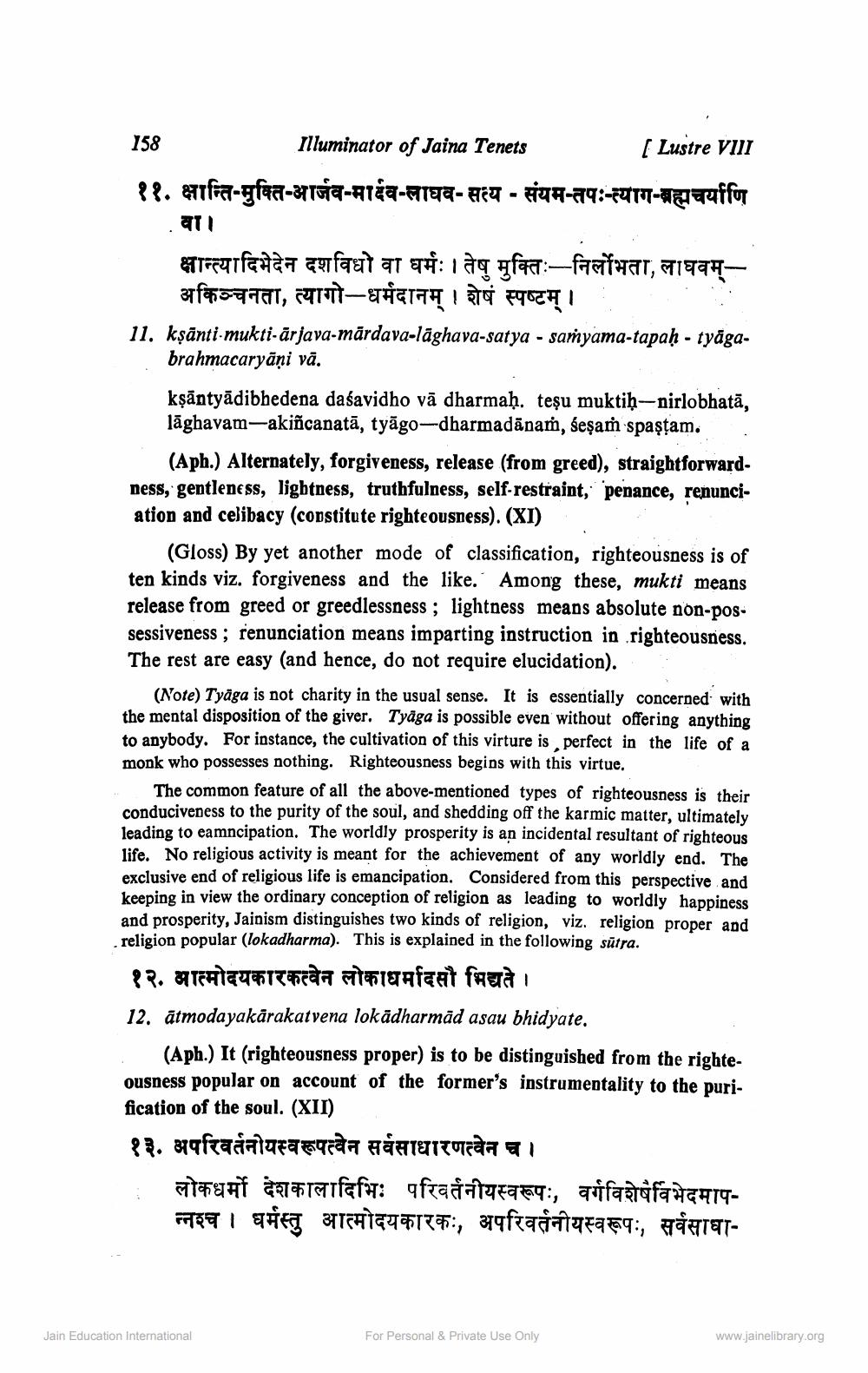________________
158
Illuminator of Jaina Tenets [ Lustre VIII Pl. Sifa-gran-3ria-AT3a-eta- ACT - 4194-99:-FU17-
ucaffor
.at
क्षान्त्यादिभेदेन दशविधो वा धर्मः । तेषु मुक्तिः-निर्लोभता, लाघवम्
अकिञ्चनता, त्यागो-धर्मदानम् । शेषं स्पष्टम् । 11. kşānti mukti-ārjava-märdava-lāghava-satya - samyama-tapaḥ - tyāga
brahmacaryāni vā. kşāntyādibhedena daśavidho vā dharmaḥ. teşu muktiḥ-nirlobhatā, lāghavam-akiñcanatā, tyāgo-dharmadānam, sesam spastam.
(Aph.) Alternately, forgiveness, release (from greed), straightforwardness, gentleness, lightness, truthfulness, self-restraint, 'penance, renunciation and celibacy (copstitute righteousness). (XI)
(Gloss) By yet another mode of classification, righteousness is of ten kinds viz. forgiveness and the like. Among these, mukti means release from greed or greedlessness; lightness means absolute non-possessiveness ; renunciation means imparting instruction in righteousness. The rest are easy (and hence, do not require elucidation).
(Note) Tyäga is not charity in the usual sense. It is essentially concerned with the mental disposition of the giver. Tyaga is possible even without offering anything to anybody. For instance, the cultivation of this virture is perfect in the life of a monk who possesses nothing. Righteousness begins with this virtue.
The common feature of all the above-mentioned types of righteousness is their conduciveness to the purity of the soul, and shedding off the karmic matter, ultimately leading to eamncipation. The worldly prosperity is an incidental resultant of righteous life. No religious activity is meant for the achievement of any worldly end. The exclusive end of religious life is emancipation. Considered from this perspective and keeping in view the ordinary conception of religion as leading to worldly happiness and prosperity, Jainism distinguishes two kinds of religion, viz. religion proper and religion popular (lokadharma). This is explained in the following sutra.
१२. आत्मोदयकारकत्वेन लोकाधर्मादसौ भिद्यते । 12. ātmodayakārakatvena lokādharmād asau bhidyate.
(Aph.) It (righteousness proper) is to be distinguished from the righteousness popular on account of the former's instrumentality to the purification of the soul. (XII) १३. अपरिवर्तनीयस्वरूपत्वेन सर्वसाधारणत्वेन च ।
लोकधर्मो देशकालादिभिः परिवर्तनीयस्वरूपः, वर्गविशेषैविभेदमापन्नश्च । धर्मस्तु आत्मोदयकारकः, अपरिवर्तनीयस्वरूपः, सर्वसाधा
Jain Education International
For Personal & Private Use Only
www.jainelibrary.org




